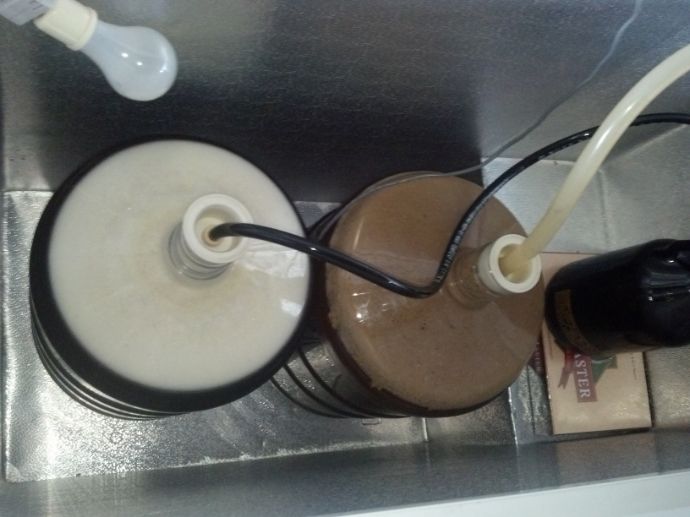Hey guys, just a shoot-the-**** tech thread here.
So, I put in an RO system for my brewery about 6 months ago. I have been using it for the usual things like water adjustments and making Star San last forever.
Recently, I also started using it for making starters, to avoid exposing the yeast to any Chloramines during their growth. Does anyone else do this? One of my major concerns was nutrition & Calcium, so here's what I have been doing;
My hope is to achieve ~100ppm calcium with the Gypsum, and then the nutrient would take care of the other trace minerals.
So far, this works. I have not noticed any differences in the rate or amount of yeast growth vs. tap water only, but I don't have a way to actually count the cells. There have been too many other variables to know if this makes my beers better or worse at all. It just seems like the right thing to do, and the fermentations appear to behave the same.
So, I put in an RO system for my brewery about 6 months ago. I have been using it for the usual things like water adjustments and making Star San last forever.
Recently, I also started using it for making starters, to avoid exposing the yeast to any Chloramines during their growth. Does anyone else do this? One of my major concerns was nutrition & Calcium, so here's what I have been doing;
- DME at a rate of 100g/L of starter volume
- Yeast nutrient (Wyeast, specifically) at a rate of 1g/L of starter volume
- Gypsum at a rate of 0.4g/L of starter volume for Calcium
- Straight RO Water to volume
- 1 drop/L of Fermcap-S to keep the starter from boiling over on the stove
My hope is to achieve ~100ppm calcium with the Gypsum, and then the nutrient would take care of the other trace minerals.
So far, this works. I have not noticed any differences in the rate or amount of yeast growth vs. tap water only, but I don't have a way to actually count the cells. There have been too many other variables to know if this makes my beers better or worse at all. It just seems like the right thing to do, and the fermentations appear to behave the same.




